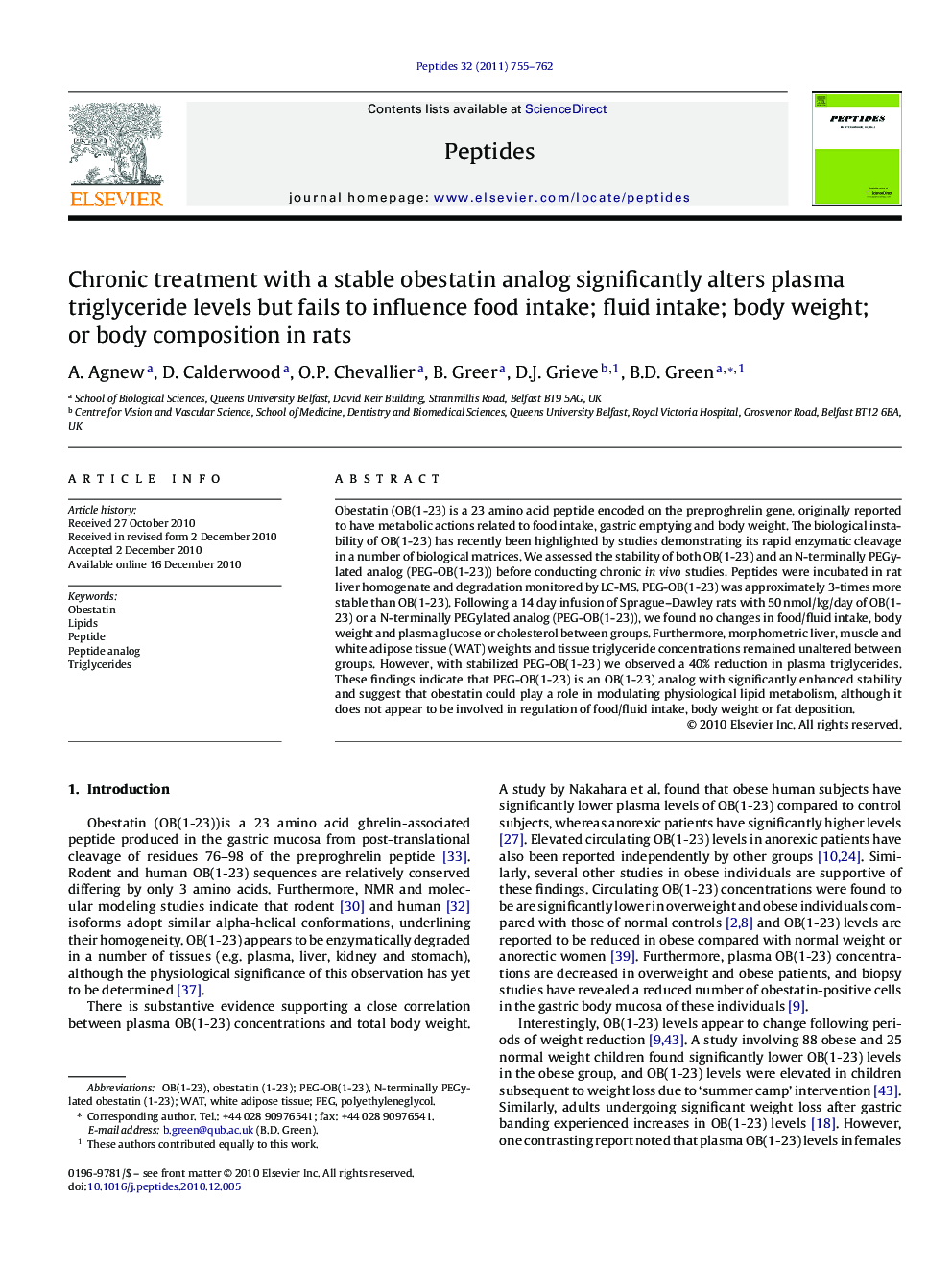| کد مقاله | کد نشریه | سال انتشار | مقاله انگلیسی | نسخه تمام متن |
|---|---|---|---|---|
| 2006659 | 1066349 | 2011 | 8 صفحه PDF | دانلود رایگان |

Obestatin (OB(1-23) is a 23 amino acid peptide encoded on the preproghrelin gene, originally reported to have metabolic actions related to food intake, gastric emptying and body weight. The biological instability of OB(1-23) has recently been highlighted by studies demonstrating its rapid enzymatic cleavage in a number of biological matrices. We assessed the stability of both OB(1-23) and an N-terminally PEGylated analog (PEG-OB(1-23)) before conducting chronic in vivo studies. Peptides were incubated in rat liver homogenate and degradation monitored by LC-MS. PEG-OB(1-23) was approximately 3-times more stable than OB(1-23). Following a 14 day infusion of Sprague–Dawley rats with 50 nmol/kg/day of OB(1-23) or a N-terminally PEGylated analog (PEG-OB(1-23)), we found no changes in food/fluid intake, body weight and plasma glucose or cholesterol between groups. Furthermore, morphometric liver, muscle and white adipose tissue (WAT) weights and tissue triglyceride concentrations remained unaltered between groups. However, with stabilized PEG-OB(1-23) we observed a 40% reduction in plasma triglycerides. These findings indicate that PEG-OB(1-23) is an OB(1-23) analog with significantly enhanced stability and suggest that obestatin could play a role in modulating physiological lipid metabolism, although it does not appear to be involved in regulation of food/fluid intake, body weight or fat deposition.
Research highlights▶ N-terminally PEGylated obestatin is approximately 3 times more stable than native obestatin. ▶ Chronic treatment with N-terminally PEGylated obestatin reduced plasma triglycerides by 40%. ▶ Obestatin treatment did not alter food/fluid intake, body weight, or tissue morphometrics. ▶ Obestatin may play a role in modulating physiological lipid metabolism, but does not affect fat deposition.
Journal: Peptides - Volume 32, Issue 4, April 2011, Pages 755–762